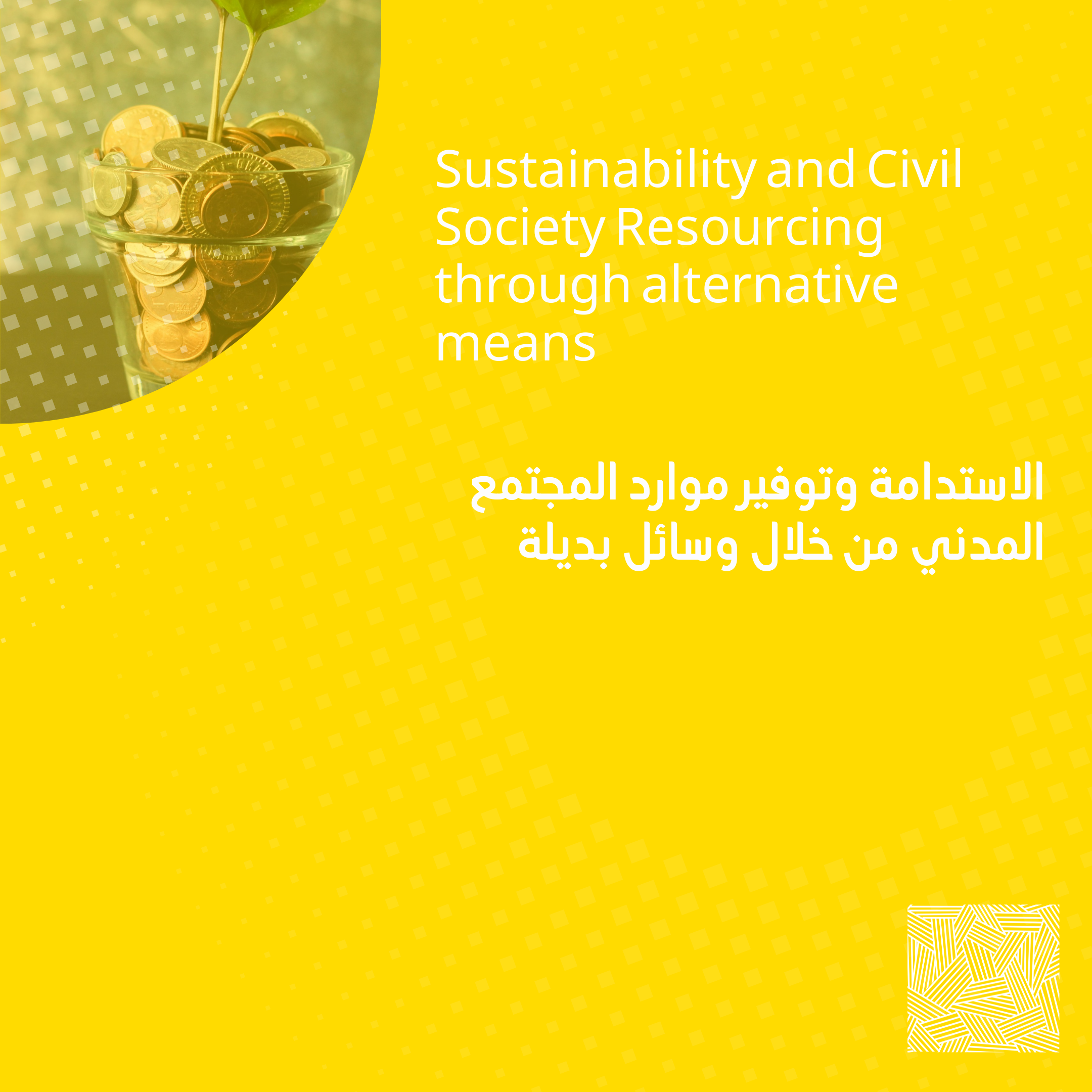
Crowdfunding in the Middle East and North Africa region research was conducted to gain a better understanding of the digital money landscape as a means to improve decision-making about future initiatives for the MENA Hub. -for CSOs to have a better perspective of innovative funding sources to achieve their objectives. – to provide a realistic view of the challenges and potential for digital currencies in the region as it relates to providing alternative funding methods for donors, activists, CSOs, and social entrepreneurs.
Alongside I4C MENA partners SMEX, SimSim, Partners Jordan, and Youth without borders, the partners worked on a comprehensive mapping of alternative funding mechanisms that can contribute to diversifying funding streams and the long-term sustainability of civil society in the MENA region through focus group events.
Results
A report (1) mapping the landscape of digital money and policy framework in the MENA region, with a context-specific focus on “relatively open” countries (Jordan, Lebanon, Morocco, Tunisia) and (2) surveying the current status of digital currencies in the region, including barriers or opportunities for usage and adoption and the legal and regulatory challenges/opportunities – A mapping report of the state of crowdfunding in the MENA region with a focus on Morocco, Tunisia, Lebanon and Jordan – Organizing 4 focus group events on digital money and crowdfunding in Morocco, Tunisia, Lebanon and Jordan, with the attendance of specialists, including MPs, researchers, Blockchain experts and activists; A recommendations report on digital money and crowdfunding challenges and opportunities in Morocco, Tunisia, Lebanon and Jordan; Forming a digital money and crowdfunding community of practice in Morocco.
Challenges
Civil society in the Middle East and North Africa (MENA) region is experiencing significant problems related to the financing of its activities. Among these problems are the challenges of civil society organizations (CSOs) to meet the funding criteria and conditions required by international donors:
(1) the inability of some to receive funds from abroad and;
(2) the difficulty, or even the impossibility, of transferring money from different countries of the region to work on common projects with other CSOs.
Most of the economical transaction within the MENA region economy is based on cash. The legal and technical infrastructure is not yet ready for online payment to secure cash transfer. CSO is facing more restrictions to access to foreign funds, and in some countries, receiving money without prior permission is illegal risky or well took more than 6 weeks to get approval from several bureaucratic institutions. On one hand, the lack of access to funds creates a lack of resources mobilization and unequal access for local NGOs. Since that the INGO and the large NGO are prioritized over the grassroots organization and small NGO. on the other hand, civil society organization is experiencing significant challenges related to fundraising, meeting funding criteria and conditions required by international donors.
As part of the MENA Hub’s goal to support innovation in civil society, one major goal is to stay current with the latest trends that impact CSOs in the region. One of the major challenges for CSOs and NGOs is resourcing – how to access alternative sources of funding and capital instead of relying on traditional funding methods (e.g., grants). There have been national and international-level legal and regulatory obstacles preventing or disqualifying donors, CSOs, activists, or social entrepreneurs from accessing or providing digital money. Moreover, there is a lack of awareness for donors and CSOs of the context-specific environments for digital money in Lebanon, Jordan, Tunisia, and Morocco. To date, a comprehensive mapping of alternative funding mechanisms is nonexistent, preventing donors and CSOs from utilizing tools or entering new markets that can contribute to diverse funding streams and the long-term sustainability of their operations.
Why is this innovative
The research allows
1) a better understanding of the digital money landscape as a means to improve decision-making about future initiatives for the MENA Hub. -for CSOs
2) to have a better perspective of innovative funding sources to achieve their objectives.
3) to provide a realistic view of the challenges and potential for digital currencies in the region as it relates to providing alternative funding methods for donors, activists, CSOs, and social entrepreneurs.
The research included three focus groups bringing together representatives of financial institutions, as well as researchers, lawyers, MPs, activists, and representatives from civil society to discuss alternative funding models for the first time.
Other tools
Alternative Civil Society resourcing